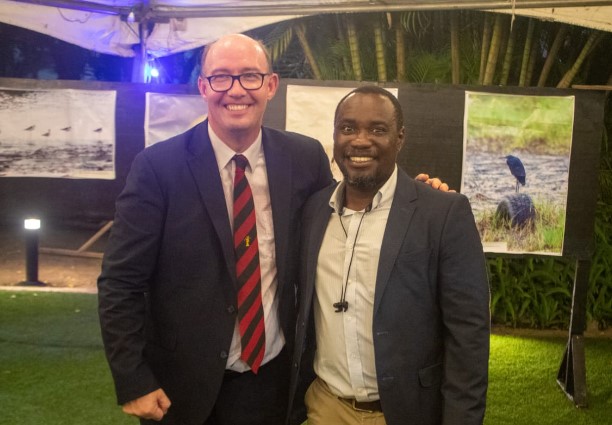
Environmentalists have decried the continuous deforestation of wetlands in Lagos State to pave way for the housing of the increasing population of residents in the state.
The ongoing deforestation and loss of wetlands, the experts argued, were part of natural preventive measures that could have prevented floods ravaging some parts of the state.
They made this known when environmental Advocacy groups including the Lekki Bird Club, Green Action, the Nigerian Conservation Foundation and Green Fingers Wildlife Initiative held a photography exhibition themed ‘Wetlands for man and biodiversity’, hosted by the Deputy British High Commissioner in Lagos, Ben Llewellyn-Jones.
The exhibition is the second in the awareness campaign organised by the environmentalists for the National Theatre Igamu wetlands, according to a statement made available to The PUNCH on
Speaking at the event, foremost environmentalist, Desmond Majekodunmi of Lufasi Conservation Park, said it was important for stakeholders to sensitise the government on the important role wetlands play in environmental and economic progress in Lagos.
He said, “What people see as swampy, stagnant water is key to many facets of our city living such as being a natural, low-cost wastewater treatment, flood mitigation, climate control and even providing a natural breeding ground that supports our fishing populations.
“We are however close to losing most of our natural wetlands due to factors like overpopulation and the need for more housing which has led to the sand filling of some of these wetlands to accommodate the housing needs of urban Lagos.
“However, when a wetland is sand-filled, the soil is hardened and it loses the ability to prevent flooding instead, it makes flooding worse. This is particularly important for Lagos, where the total economic losses due to flooding across the state have been estimated at USD 4 billion per year, which is 4.1% of the state’s GDP or 1.0% of the national GDP.”
On his part, the British High Commissioner, Ben Llewelyn-Jones said, “Protection and restoration of critical ecosystems such as wetlands require international cooperation, policy-making, capacity building, and technology transfer. In January 2021, the UK announced a commitment of at least £3 billion from our existing commitment of £11.6bn for international climate finance. This money has been earmarked for climate change solutions that protect biodiversity-rich land and ocean ecosystems, and support livelihoods.
“In Nigeria, we are collaborating with the Federal and State Governments, as well as Civil Society Organisations to create the enabling environment and fundamental drivers that are key to conservation and the sustainable use of nature.
“Through the UK-funded FSD Africa program, we are committed to supporting the Lagos State Government’s initiative to build a sustainable, and flood-resilient mega city; by helping to mobilise green financing via the capital market and insurance industry.”




